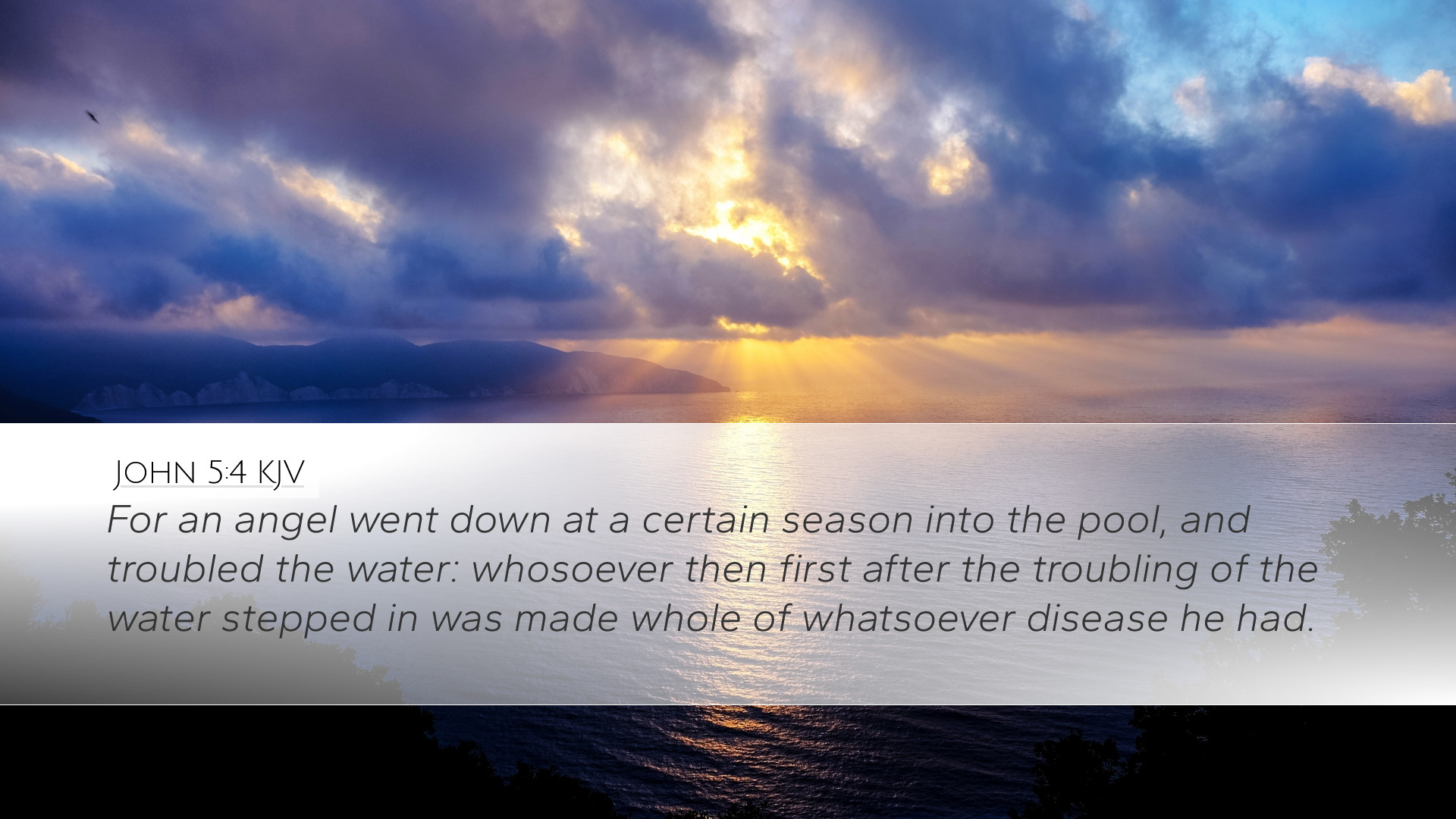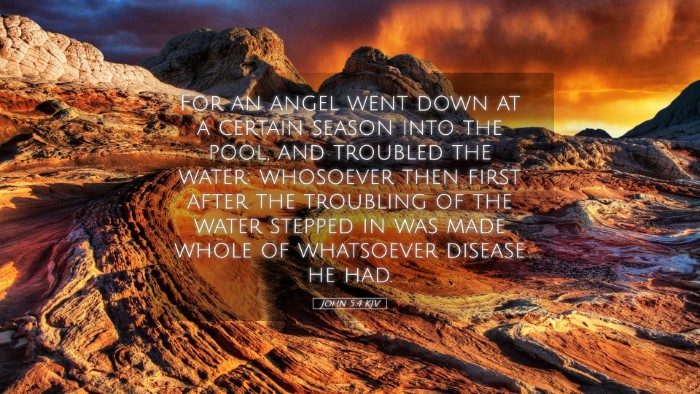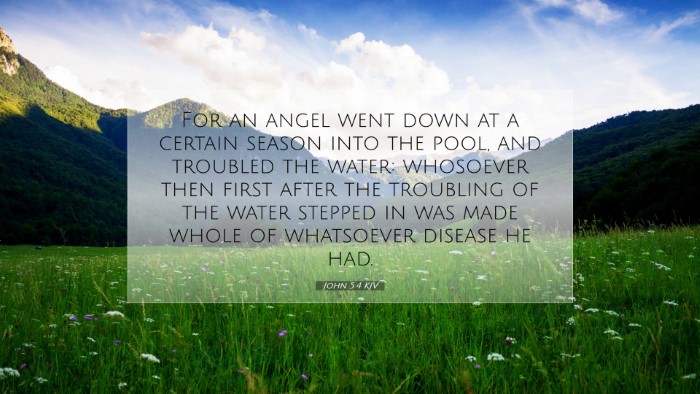Commentary on John 5:4
Verse Context: John 5:4 is situated within the narrative of Jesus healing the man at the pool of Bethesda. This verse references a belief that an angel would occasionally stir the waters of the pool, leading to a miraculous opportunity for healing.
Textual Note
This verse is often noted for its absence in many modern translations. It is typically omitted due to questions surrounding its originality in the text. However, it remains a part of the majority text tradition.
Interpretive Insights
The insights into this passage reflect the varying interpretations and theological implications observed by renowned commentators.
Matthew Henry
Spiritual Significance: Matthew Henry emphasizes the spiritual dimension of this incident, observing that the pool symbolizes a place of hope where the afflicted gather in anticipation of deliverance. He reflects on the human tendency to seek miraculous interventions rather than addressing the root of suffering.
Nature of Faith: Henry notes that faith in the miraculous is often misguided. He points out that while some sought healing from the waters, true healing is only found in Christ. His commentary invites readers to discern between the pursuit of physical healing and the need for spiritual restoration.
Albert Barnes
Historical Context: Barnes provides a detailed glimpse into the historical understanding of the pool of Bethesda, explaining that it was common belief among the Jews that the water had healing properties, which was likely rooted in superstition rather than scriptural validation.
Miracles and Ministry: He contemplates the ministry of Jesus, which often involved confronting the prevailing misconceptions of the time. In this narrative, Jesus supersedes the expectations tied to the pool, demonstrating that He alone has the power to heal and restore.
Adam Clarke
Angel of the Lord: Clarke explores the notion of the 'angel' stirring the waters, suggesting that the angel represents God's intermediary presence. He posits that the stirring of the waters offers a metaphor for divine action within human experience, urging believers to remain alert to God's workings in the world.
Cultural Interpretation: Clarke also points out the implications of cultural beliefs on faith practices. He critiques the reliance on physical healing as a litmus test for divine favor, reminding readers that spiritual well-being exceeds the bounds of physical restoration.
Theological Implications
- Faith vs. Works: This passage invites a discussion on the relationship between faith in Christ and action. The man's inactivity in seeking healing mars the emphasis Jesus later places on faith and initiative.
- Role of Suffering: The commentary suggests an exploration of the role of suffering and its potential purposes within the scope of spiritual growth and divine purpose.
- Divine Sovereignty: The narrative illustrates God’s sovereign choice to heal, reminding scholars and students that divine action may not always align with human expectations.
Conclusion
In summation, John 5:4 stands as a rich text for reflection and discourse among pastors, students, and theologians. It underscores the need for an understanding of faith that transcends miraculous events, inviting believers to anchor their hope in Christ—the true source of healing and salvation. As they meditate on this passage, they are encouraged to apply its truths in ministerial practice, fostering a faith that recognizes God's overarching authority and tender care in the midst of human suffering.


